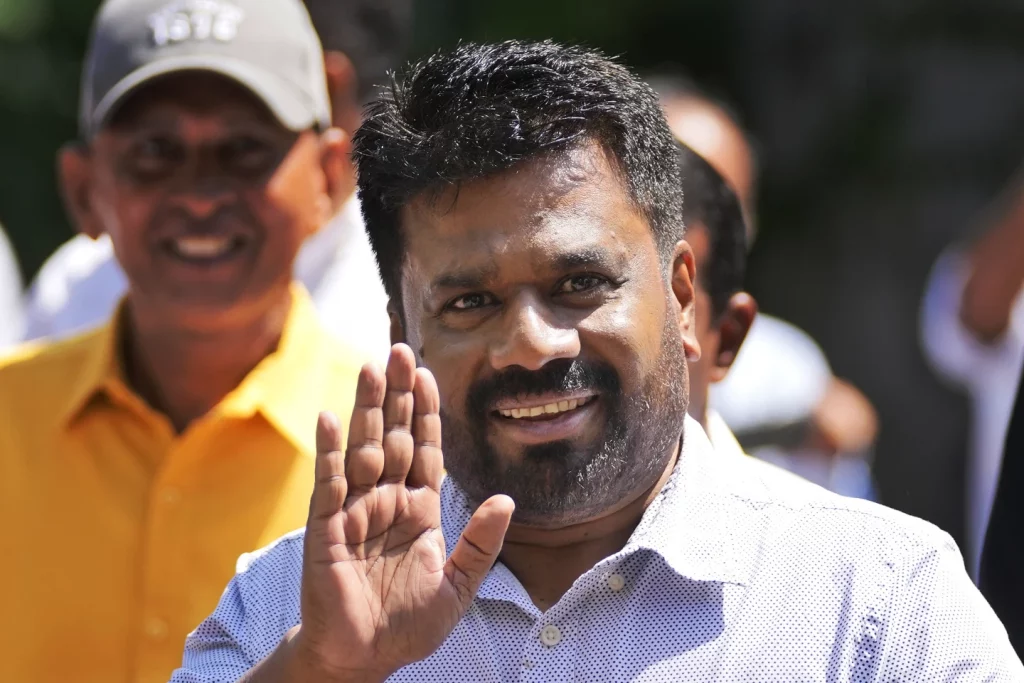Sri Lanka is in the grip of a political tsunami with the coalition of National People’s Power (NPP), led by President Anura Kumara Dissanayake, getting a historic two-third majority in the parliamentary elections held 14 November. The country’s people have given such an overwhelming mandate to the NPP that the message is unmistakable. There is a clear shift in Lankan politics as the coalition’s landslide victory shows the people have been able to come out of the decades-old bloody ethnic enmity and strife and now want to forge ahead together for progress and economic wellbeing for all. It is remarkable that the coalition has got the support of virtually all sections, who had in 2022, thrown out the old political establishment unable to cope with unprecedented economic hardships. The foundation of this success was built in September when the people elected the Left-leaning Dissanayake the country’s President. The election, held a year ahead of schedule, was necessitated by Dissanayake’s gamble to dissolve Parliament following his presidential win. While he had won the presidency in September 2024, he had failed to secure more than 50 per cent of the vote. He needed at least a simple majority in Parliament so as to be able to implement reforms and steer the nation’s economic recovery.
A strong parliamentary majority alone allows the President to strengthen his position and carry out his economic and political agenda. He has promised to bring about economic recovery, adopt anti-corruption measures and effect constitutional reforms to curb the sweeping powers of the President under the existing constitutional arrangements. A parliamentary majority provides the necessary legislative support for these initiatives. More so because the alliance aims at mitigating Sri Lanka’s debt crisis at the earliest and attracting foreign investment. The results are most significant as NPP has made unprecedented gains in Tamil-majority regions, including Jaffna, where it won three out of six seats, defeating traditional Tamil nationalist parties. This shows it is for the first time a Sinhala-majority party has achieved such a victory in Jaffna that reflects the new mood of the country as a whole with the NPP emerging as a multi-ethnic political force. The NPP’s parliamentary majority has tremendous geopolitical importance too. While Dissanayake is known for his pro-China leanings, he has all the same adopted a pragmatic approach taking his people’s interests into utmost consideration to reassure India of his commitment to maintaining regional stability and cooperation. He has indeed come a long way from criticizing the 1987 India-Sri Lanka Accord dillydallying with the 13th Amendment, which would have devolved powers to Tamil minorities. However, his recent remarks about granting strong guarantees of political rights to Tamil communities indicate keenness to engage with India on these matters. Also, Dissanayake is trying to make a well-balanced approach to his policies of transparency. He has criticised projects such as the Adani Group’s wind power initiative, citing concerns about Sri Lanka’s energy sovereignty. At the same time he has raised issues about Chinese-backed projects, such as the Hambantota Port. This dual focus gives an opportunity to India to try to strengthen economic ties.
Moreover, during his presidential campaign, Dissanayake had pledged not to allow Sri Lanka’s territory to be used to threaten India or regional stability. This is reassuring for India whose short-sighted policies towards its neighbours have already harmed the country much with Maldives, Myanmar and Nepal veering towards China and Sri Lanka letting its ports be used by China. India has played a critical role in supporting Sri Lanka during its 2022 economic crisis, providing over $4.5 billion in assistance. With no strings attached, the package was far better than the one given by the International Monetary Fund at that time. Dissanayake’s acknowledgement of this support and his expressed desire to strengthen bilateral ties create opportunities for New Delhi to engage with his administration constructively. India now has got a chance, which does not come often, to build a fi rmer bridge with Sri Lanka and keep Chinese infl uence at bay. It should not be scuppered by any myopic policy that has characterised the Indian foreign affairs establishment during the past decade.
